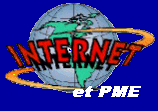 |
 |
SPEAKER : John Glynn
'The Experiences of Udaras na Gaeltachta in developing the Gaeltacht Regions of Ireland’
Background
The initial steps, which were commenced in 1990, involved the use of the Minitel Network in Ireland by establishing a database of all companies operating in the Gaeltacht regions. This database was directed at assisting the marketing activities of the companies and included details of the company products and activities so that potential sub-contact customers could identify them as a new possible source for business. The disadvantage of the Minitel network was that it was slow, text only, national only and the network was in the early stages of development. The planned market penetration by Telecom Eireann, the national PTT, never achieved its potential or an acceptable level of use and was discontinued some years later. The database was maintained until 1995 although its benefit was questionable. The conversion of the database to an Internet site was considered but was not possible due to the costs that would be involved in the development of an integrated site.At all stages of development Udaras considered that the introduction of technology into the industrial sector was not sufficient to promote the region as a location for enterprise development. It considered that the broader use of technology at all levels of the community was important to ensure that the region overcame the disadvantages of location by having access to advanced telecommunications networks available where ever a company wished to locate. This programme has been successful and will continue in the years ahead.During the early 90’s, Udaras looked at the use of technology and telecommunications as having a broader requirement that use in companies only. It considered that the use and knowledge of technology at all levels of the community should be encouraged and that this would improve the environment for companies wishing to undertake technology supported activities. The Secondary School Students, who were the potential workers in the years ahead, were a major target for these activities. It was considered that they should be aware and informed on the use an potential of technology. To achieve this Udaras na Gaeltachta established and funds a comprehensive technology training course for students in the second last year of their school education. This course, which includes the use of all of the normal business software programmes, also includes the use of the Internet and the development of sites on the World Wide Web. The course, which is integrated into the school curriculum is currently in its fifth year of operation and has proved to be very successful and is appreciated by the schools. It is carried out by Gcom on behalf of Udaras who provide the necessary funds to support the programme. This type of course is not available in any other region of Ireland.
Udaras and Gcom have co-operated on a number of projects which received funding from the EU under the Development Programmes. With assistance from the Telematics Applications Programme, the Leonardo Da Vinci and Youthstart Programmes, a number of projects were implemented which involved the use of the Internet, the WWW and PC based video conferencing in different combinations to provide Distance Learning Courses to selected SMEs and Vocational Training Groups in different parts of the Gaeltacht without the necessity for them to leave their place of work or employment. Because of the dispersed nature of the region, the use of technology was seen as a medium for bringing ‘training to the people’ rather than bringing ‘the people to the training’. These projects have been very successful and have been seen by the SME sector as being of real benefit in their on-going development. Companies who participated in the projects are praising the concepts and benefits that the work has brought to them. All of these projects were carried out on a transnational basis with selected partners in a selection of other EU Member States.
Through the participation in the transnational projects the Gaeltacht regions has been developed as a very advanced technological region. Also, the project activities were supported by Telecom Eireann and as a result the telecommunications infrastructure of the region is as advanced as any of the urban centres in the country and is more advanced a most other rural regions in the rest of Ireland. The use of video conferencing technology in companies and in regional training centres is the highest in the whole of Ireland. Also Gcom have installed the only commercial multi-point video conferencing bridge in the west of Ireland.
To ensure that the general community was aware of technology and it’s possible uses, Udaras and Gcom have also got involved in a number of Public Service projects which have involved the use of the Internet, the WWW and Public Access Terminals.
The penetration of technology,
the Internet and the WWW into the domestic and industrial sectors in Ireland
is quite low when compared to some of the other EU Member States. Udaras
will continue its efforts to promote and expand the use of the latest technologies
and telecommunications networks at all levels of the community and industry
in the years ahead.